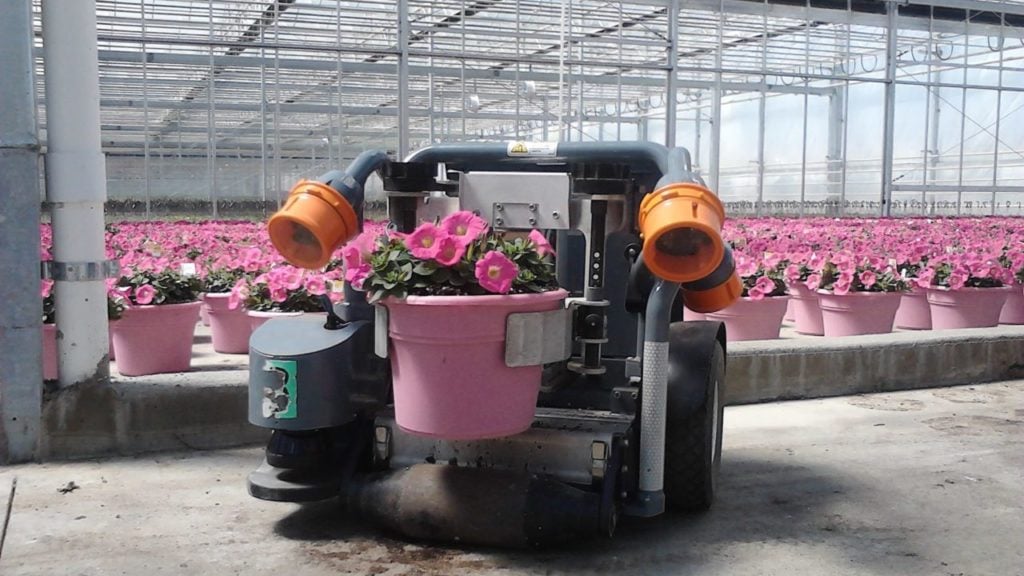It’s 2017, and it’s an amazing time to be alive. If you are an entrepreneur, there is a lot to be optimistic about. Technology and innovation has opened a world of opportunities never available before. With a laptop, a smart phone, and WiFi, the means of production are available to the greatest number of people ever in history. The internet has made it possible to both hire people and sell products and services worldwide. And with the rise of digital currencies, instant transfers of money worldwide without currency exchange or processing fees will soon be the norm.
But is it possible that we are innovating humanity out of the labor force…permanently? As CNBC recently reported:
A 2013 study by Oxford University's Carl Frey and Michael Osborne estimates that 47 percent of U.S. jobs will potentially be replaced by robots and automated technology in the next 10 to 20 years. Those individuals working in transportation, logistics, office management and production are likely to be the first to lose their jobs to robots, according to the report.
This isn’t just a theory found in the halls of academia. There are well-known leaders in the tech community, as well as economists on both sides of the political aisle, who agree that this is a real possibility. What happens when automation renders 47 percent of the current jobs that employ humans today?
Elon Musk, founder of SpaceX and Tesla, shared his thoughts on what might be the solution. He said, "There is a pretty good chance we end up with a Universal basic Income, or something like that, due to automation."
So what is a Universal Basic Income? It’s a fixed, regular payment from the government that all citizens would receive, regardless of employment status or wealth. Currently, no nation has fully implemented a UBI yet, but Finland, Switzerland, and the Netherlands are all considering it. In America, as The Economist notes, you might be surprised to find out that the UBI has support from economist of all political stripes: conservative, liberal, and libertarian. Supporters on the Left see it as a solution to alleviate poverty, while those on the Right see it as a way to streamline the current social welfare system, and eliminate fraud and waste.
Naturally, it also has it's share of detractors, some who argue that not only will it do nothing to alleviate poverty, but that it will likely become simply another layer of transfer payments to burden our already unsustainable entitlements system.
Regardless of any political solution that might be proposed to deal with this massive shift coming to the American jobs landscape, there are steps we can take now to prepare ourselves. Instead of waiting for this crisis to hit, and for a government program to solve it, we should do everything we can to ensure that we aren’t in that 47 percent likely to be affected. When the 2008 financial crisis hit, those who anticipated it were able to take steps to avoid catastrophe. Others, who were caught off guard, are still recovering today in 2017.
If you have a job in one of these affected industries, consider expanding your current “career capital.” Begin developing new skills within your current industry that are likely to be relevant in the future. Or, start a side business in a new industry, now. This will allow you to slowly grow your side-gig, and transition when you want to, before it becomes necessary.
If you are an entrepreneur, begin developing products and services that aren’t likely to become obsolete due to automation. Just like during every other massive change in American history — the Industrial Age, the Information Age, etc. — those who could pivot and innovate to the needs of the new economy were the ones who not only survived but thrived.
It may sound obvious, but one thing that will never become obsolete is creating value for others.The hard truth is that when technology and automation comes along and takes over jobs from people, it's really just the markets way of saying "Hey, your labor is much more valuable somewhere else." Jobs are not the end in themselves. Creating value for others and service people is.
The economic landscape is changing rapidly, and will continue to so. Don't let yourself be caught off guard. Be agile, creative and take responsibility for your own destiny. Do that, and you will be less concerned, and affected by, the solutions being proposed by policymakers.









